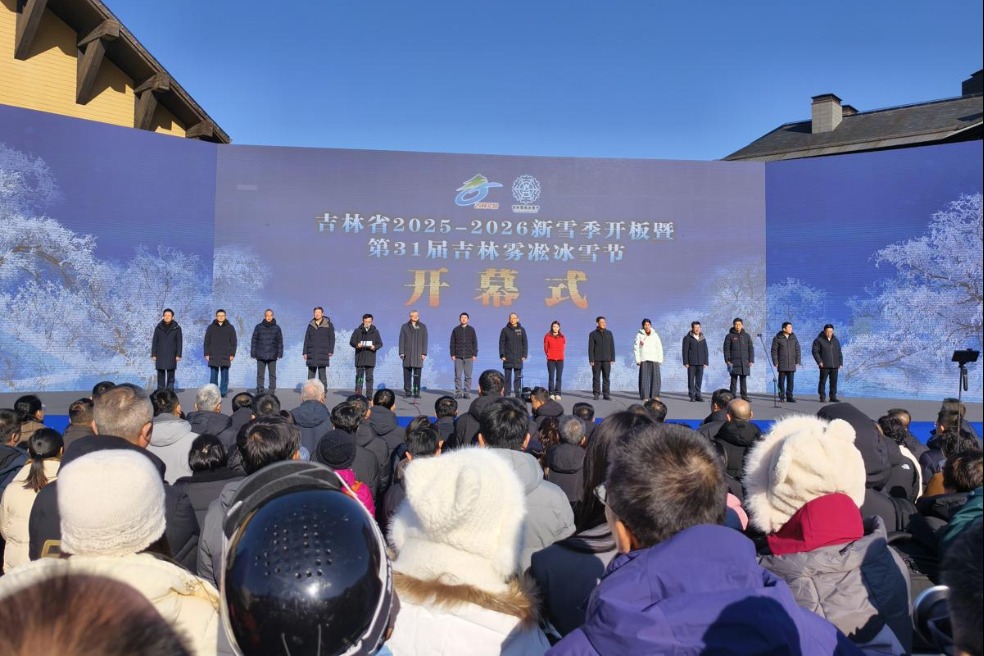Nation aims for AI-fueled healthcare

China has unveiled a plan to integrate artificial intelligence across its healthcare system over the next five years, focusing on enhancing grassroots capabilities, improving diagnostic imaging and patient services at hospitals, and advancing the development of traditional Chinese medicine.
The road map for AI-powered healthcare development was detailed in a policy document released recently by the National Health Commission and four other government bodies as part of a broader national strategy to expand AI applications across key industries.
According to the plan, by 2027, China will have established a robust foundation of high-quality, reliable healthcare datasets and trusted data spaces. The country plans to create specialized, disease-specific AI models and applications to achieve widespread adoption of AI-assisted primary care, intelligent clinical decision support systems, and smart patient services across medical institutions.
By 2030, the goal is to have fully integrated AI-assisted diagnostic tools in primary care facilities, while all secondary and higher-level hospitals will routinely employ AI technologies for tasks such as medical imaging analysis and clinical decision support.
"By this time, a standardized regulatory framework for AI-powered healthcare applications will be largely perfected, and the nation will have established a number of world-leading hubs for technological innovation and professional talent development in the field," the document said.
A central approach to using AI is to empower grassroots healthcare providers. This will be achieved by developing AI-assisted tools for managing common diseases and aiding primary care physicians in diagnosis, prescription review, patient follow-up management and consultations with TCM practitioners.
Furthermore, AI will be deployed to enhance chronic disease management by offering personalized lifestyle plans and strengthening oversight in elderly and nursing care services.
In large hospitals, the application of AI in diagnostics is set to evolve from single-disease detection to complex analysis of multiple conditions affecting a single organ, significantly boosting diagnostic efficiency and accuracy.
The document stated that national- and provincial-level medical centers will lead the development of advanced clinical decision support systems for major and complicated diseases in fields such as pediatrics, psychiatry and oncology to enhance specialist physicians' expertise.
The plan also emphasizes using AI to streamline patients' experience. Hospitals will offer services such as intelligent preconsultation, precise appointment scheduling and virtual accompaniment, and adopt bedside intelligent devices for real-time patient monitoring and nursing tasks.
The policy advocates for an intelligent referral system that dynamically allocates patients based on regional medical resource availability, departmental workload and case urgency.
In the realm of traditional Chinese medicine, AI will be harnessed to build specialized knowledge bases and high-quality datasets to develop sophisticated diagnostic and treatment models.
The plan encourages the creation of end-to-end traceability systems for herbal medicines and the implementation of intelligent management throughout the entire supply chain, from cultivation and processing to clinical use.
Additionally, local authorities and institutions are encouraged to innovate in the development of TCM equipment, exploring intelligent diagnostic devices and advanced tools such as acupuncture and massage robots and smart decoction machines to modernize traditional practices.
The document also covers the application of AI in strengthening public health surveillance and emergency response, accelerating medical research and education, and fostering a vibrant innovation ecosystem.
Authorities emphasized the importance of implementing robust oversight and early-warning mechanisms to safeguard medical quality, personal privacy and data security.
Fan Jia, an academician at the Chinese Academy of Sciences and a liver cancer specialist at Zhongshan Hospital at Fudan University, said in a signed article in Health News that the release of the document marks a critical step toward addressing the uneven distribution of high-quality medical resources and overcoming bottlenecks in the treatment of complex diseases amid the rapid advancement of AI.
wangxiaoyu@chinadaily.com.cn




































